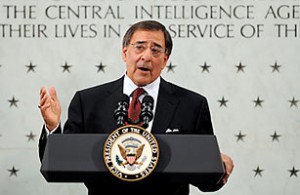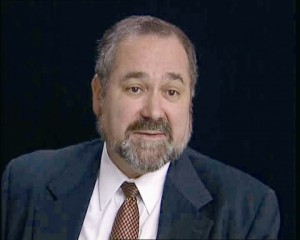
Message from the Director: Lessons from Khowst
Last December, our Agency family lost seven courageous and talented colleagues in a terrorist attack at Forward Operating Base Chapman in Khowst, Afghanistan. These dedicated men and women were assigned to CIA’s top priority—disrupting and dismantling al-Qa’ida and its militant allies. That work carries, by its very nature, significant risk. CIA is conducting the most aggressive counterterrorism operations in our history, a mission we are pursuing with a level of determination worthy of our fallen heroes. We will sustain that momentum and, whenever possible, intensify our pursuit. We will continue to fight for a safer America.
Earlier this year, I directed that a task force of seasoned Agency professionals conduct a review of the Khowst attack. The purpose was to examine what happened, what lessons were learned, and what steps should be taken to prevent such incidents in the future. In addition, I asked Ambassador Thomas Pickering and Charlie Allen, a highly accomplished former Agency officer, to conduct an independent study of the Khowst attack and to review the work of the task force. They concurred with its findings. One of CIA’s greatest strengths is our ability to learn from experience, refine our methods, and adapt to the shifting tactics of America’s enemies.
The review is now complete, and I would like to thank those who participated. They did our Agency a great service. It was, to be sure, a difficult task—especially since key insights perished with those we lost. Perfect visibility into all that contributed to the attack is therefore impossible. But based on an exhaustive examination of the available information, we have a firm understanding of what our Agency could have done better. In keeping with past practice, we will provide the Khowst report to the Office of Inspector General.
In highly sensitive, complex counterterrorism operations, our officers must often deal with dangerous people in situations involving a high degree of ambiguity and risk. The task force noted that the Khowst assailant fit the description of someone who could offer us access to some of our most vicious enemies. He had already provided information that was independently verified. The decision to meet him at the Khowst base—with the objective of gaining additional intelligence on high priority terrorist targets—was the product of consultations between Headquarters and the field. He had confirmed access within extremist circles, making a covert relationship with him—if he was acting in good faith—potentially very productive. But he had not rejected his terrorist roots. He was, in fact, a brutal murderer.
Mitigating the risk inherent in intelligence operations, especially the most sensitive ones, is essential to success. In this case, the task force determined that the Khowst assailant was not fully vetted and that sufficient security precautions were not taken. These missteps occurred because of shortcomings across several Agency components in areas including communications, documentation, and management oversight. Coupled with a powerful drive to disrupt al-Qa’ida, these factors contributed to the tragedy at Khowst. Each played an important role; none was more important than the others. Based on the findings of the task force and the independent review, responsibility cannot be assigned to any particular individual or group. Rather, it was the intense determination to accomplish the mission that influenced the judgments that were made.
There are no guarantees in the dangerous work of counterterrorism, but the task force identified six key areas that deserve greater focus as we carry out that vital mission. We will:
- Enforce greater discipline in communications, ensuring that key guidance, operational facts, and judgments are conveyed and clearly flagged in formal channels.
- Strengthen our attention to counterintelligence concerns while maintaining a wartime footing.
- Apply the skills and experience of senior officers more effectively in sensitive cases.
- Require greater standardization of security procedures.
- More carefully manage information sharing with other intelligence services.
- Maintain our high operational tempo against terrorist targets, even as we make adjustments to how we conduct our essential mission.
I have approved 23 specific actions recommended by the task force, some of which I ordered implemented months ago. They provide for organizational and resource changes, communications improvements, tightened security procedures, more focused training, and reinforced counterintelligence practices. These include:
- Establishing a War Zone Board made up of senior officers from several components and chaired by the Director of the National Clandestine Service. It will conduct a baseline review of our staffing, training, security, and resources in the most dangerous areas where we operate.
- Assembling a select surge cadre of veteran officers who will lend their expertise to our most critical counterterrorism operations.
- Creating an NCS Deputy within the Counterterrorism Center, who will report to the Director of the Counterterrorism Center and ensure a more integrated effort across Agency offices.
- Conducting a thorough review of our security measures and applying even more rigorous standards at all our facilities.
- Expanding our training effort for both managers and officers on hostile environments and counterintelligence challenges.
- Creating an integrated counterintelligence vetting cell within our Counterterrorism Center that focuses on high-risk/high-gain assets, evaluates potential threats, assesses “lessons learned,” and applies the latest technology and best practices to counterterrorism operations.
- Designating a senior officer to ensure that all the recommendations are indeed implemented.
We’ve now taken a hard look at what happened and what needed to be done after the tragedy at Khowst. While we cannot eliminate all of the risks involved in fighting a war, we can and will do a better job of protecting our officers. Drawing on the work of the task force and its insights, it’s time to move forward. Nothing in the report can relieve the pain of losing our seven fallen colleagues. By putting their lives on the line to pursue our nation’s terrorist enemies, they taught us what bravery is all about. It is that legacy that we will always remember in our hearts.
Leon E. Panetta
Posted: Oct 19, 2010 06:30 PM
Last Updated: Oct 19, 2010 06:30 PM
Last Reviewed: Oct 19, 2010 06:30 PM
Phi Beta Iota: Can't fix stupid.
Journal: The Truth on Khost Kathy
Journal: CIA Leads the “Walking Dead” in USA (With RECAP Links)
Reference: Fixing Intel–A Blueprint for Making Intelligence Relevant in Afghanistan
Reference: Retired CIA officer–Fix the Agency
Review: Beyond Repair: The Decline and Fall of the CIA
Review: The Human Factor–Inside the CIA’s Dysfunctional Intelligence Culture






